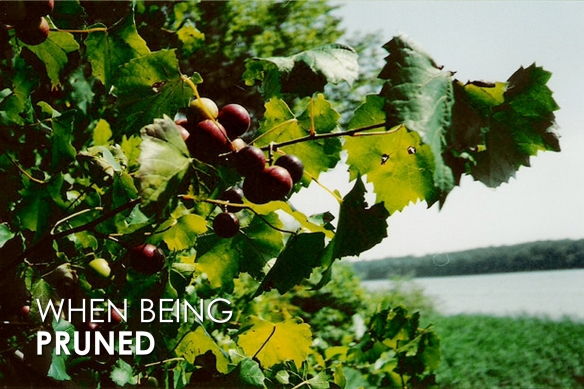 23 For I received from the Lord what I also passed on to you, that the Lord Jesus on the night in which he was betrayed took bread, 24 and after he had given thanks he broke it and said, “This is my body, which is for you. Do this in remembrance of me.” 25 In the same way, he also took the cup after supper, saying, “This cup is the new covenant in my blood. Do this, every time you drink it, in remembrance of me.” 26 For every time you eat this bread and drink the cup, you proclaim the Lord’s death until he comes. – 1 Cor. 11:23-26
23 For I received from the Lord what I also passed on to you, that the Lord Jesus on the night in which he was betrayed took bread, 24 and after he had given thanks he broke it and said, “This is my body, which is for you. Do this in remembrance of me.” 25 In the same way, he also took the cup after supper, saying, “This cup is the new covenant in my blood. Do this, every time you drink it, in remembrance of me.” 26 For every time you eat this bread and drink the cup, you proclaim the Lord’s death until he comes. – 1 Cor. 11:23-26
This coming Sunday, October 19, we will participate in communion (aka “The Lord’s Supper) for the first time at LifeCity Church. While there has been some mistaken thoughts about communion, for me the spiritual exercise is extremely meaningful. As we get close to the day we do this as a church for the first time, I want the people who attend this Sunday to understand why this is such a big deal. Perhaps you’re nowhere near Santa Clara, but still wonder. Well, here’s a few thoughts on the subject:
- Symbolic. Jesus handed freshly broken bread and said “Take, eat this is my body.” He was speaking figuratively just as he did when he offered them the cup of wine and said, “take, drink, this is my blood…” The point of communion is to serve as a…
- Reminder. Jesus asked us to participate in the Lord’s Supper “in remembrance” of his sacrifice on the cross for the sin and brokenness of the world. When we do so we are remembering “the Lord’s death”. Because it is a reminder, communion is for those who have already placed their faith in Christ. Participating is completely meaningless for the person who has not put their faith in Jesus.
- Hope. We’re not just remembering what Christ did for us by dying on the cross (and, yes, rising again) – we are proclaiming it “until He comes.” Because He is coming back! One day we’ll see Him face-to-face and He’ll set this world under His rule and justice.
- Witness. By participating in communion together we are “proclaiming” via a symbolic demonstration of what Jesus did for the whole of humanity. The Lord’s Supper is a powerful testimony of what Jesus did for those who have yet to believe on Him.
- Cleansing. We are commanded to purify ourselves for the taking of communion. This is done directly between each individual and God – because of the cross, Jesus is the only necessary intercessor. We are encouraged to confess to God the things that He calls as sin, and receive the forgiveness that Jesus offers through His sacrifice which we remember at communion.
In anticipation for this Sunday (or any communion service), ask yourself two things:
- Have I placed my faith and trust in Christ?
- Is there anything in my life that is separating my heart from the heart of God?
I look forward to sharing in the Lord’s Supper with you this Sunday, church!
Blessings,
Pastor John



